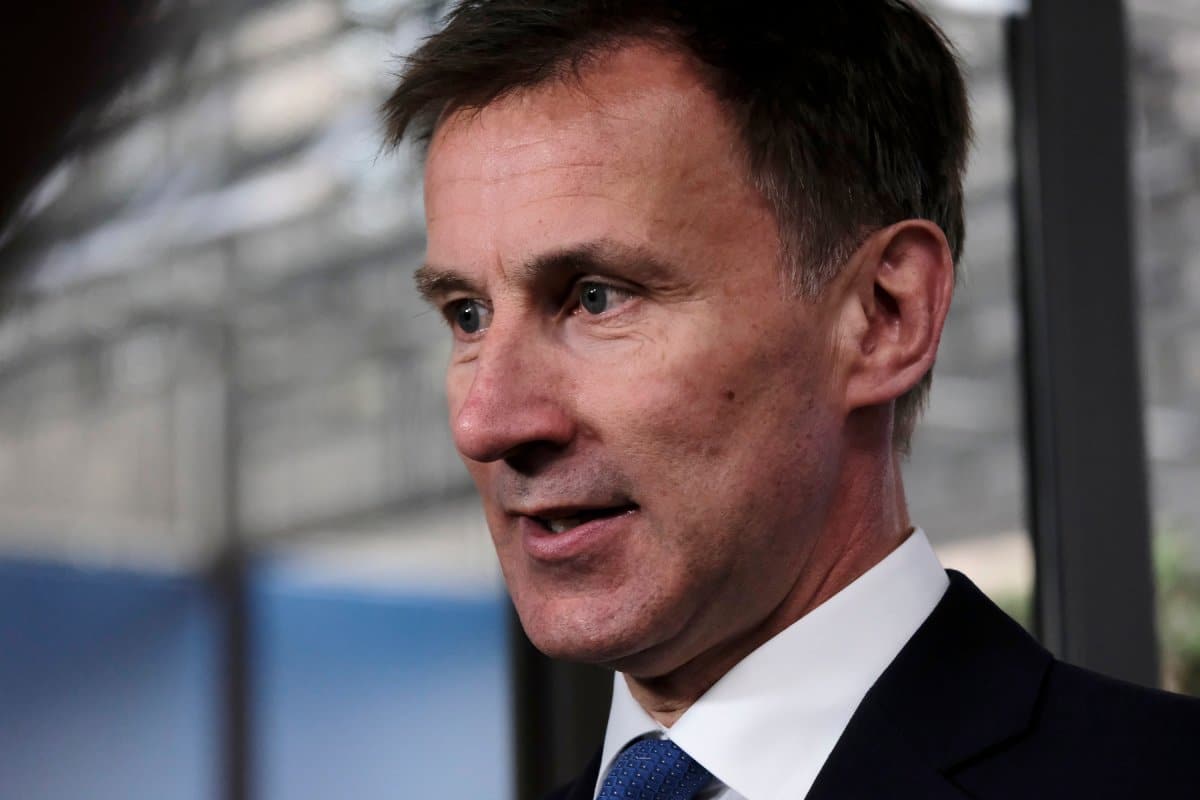Amidst mounting anticipation of tax cuts in the UK, the IMF has issued a cautionary warning to Chancellor Jeremy Hunt. Here’s the full story.
Election Giveaway
The International Monetary Fund (IMF) has issued a severe warning to Chancellor Jeremy Hunt, advising him against implementing tax cuts in his upcoming March budget.
The IMF, based in Washington, emphasized the need to prioritize critical areas of public spending over tax reductions. The warning from the IMF will not be viewed positively by the UK government, which is focused on trying to win back voters with tax cuts.
The IMF seriously doubted the feasibility of implementing tax cuts without the need for additional borrowing or post-election spending reductions.
The IMF updated its forecasts for the UK and the global economy and expressed severe doubts about Hunt’s proposed plans, urging him to focus on repairing public finances following the devastating impact of the pandemic and ongoing conflict in Ukraine.
The IMF also emphasized the need to address the UK’s growing spending pressures by preserving public services, a task not well suited to the Conservatives, as well as making investments geared towards long-term growth and achieving net-zero targets, which the independent Climate Change Committee had recently warned the government it was falling seriously behind on.
Calls to Abandon the Plan
The suggestions the IMF made were varied and would not have been well received by Hunt, a true fiscal conservative with objectives of balancing the nation’s finances and winning the next election.
They suggested abandoning the proposed income tax cuts expected in the next budget, proposing an increase in carbon and property taxes, eliminating frequently abused loopholes in income and wealth taxation, and abandoning the pensions triple lock.
The IMF argued that these measures would contribute to stabilizing the debt-to-GDP ratio while meeting the medium-term spending needs essential for economic recovery.
For advice that seemed laser-focused on inflicting a greater tax burden on the voters who make up the majority of the Conservative party voter base, Chancellor Hunt outright rejected the IMF’s advice.
He defended his decision by pointing to the expected strengthening of economic growth in the coming years, even though the Conservative government has promised this growth, which has yet to materialize. Hunt also highlighted the implementation of significant capital investment tax reliefs and national insurance cuts to boost work incentives.
The chancellor acknowledged that it was “too early to know” if the tax reductions would be affordable but maintained that strategic cuts could significantly contribute to the much-prophesied economic growth.
Don’t Blame The Messenger
In yet more bad news for the Chancellor, the IMF’s economic forecast for the UK was rather modest. They projected anemic growth of 0.5% in 2023, and a very slight increase to 0.6% in 2024.
In a rather pointed observation, the IMF noted that the figures remained unchanged from October and that the UK’s growth was only ahead of bottom-placed Germany within the G7 economies.
The IMF’s global economic outlook remained cautiously optimistic, characterizing the current trajectory as a “soft landing.” Upward revisions for 2024 growth were attributed to better-than-expected performances by major economies, including the US, China, Russia, and India. The UK was conspicuous by its absence.
The IMF outlined some of the many factors influencing global growth, including the possibility of deeper interest rate cuts due to falling inflation. On another note sure to annoy Jeremy Hunt, they also suggested that increased government spending by governments facing elections could help boost the global economic outlook.
However, the IMF also cautioned against risks to the global economy, such as the continuing volatile situation in the Middle East and stubbornly persistent inflation.
Troubled Waters
The IMF’s timely warning to the Chancellor reflects a global economic landscape still reeling from the Coronavirus pandemic, the war in Ukraine, and continuing bloody clashes in the Middle East. Though the IMF did sound optimistic for the global economy, serious potential challenges persist.
Though welcomed by many in the UK straining under the cost of living crisis, the organization’s recommendations for fiscal policy adjustments will make sore reading for the Chancellor.
As the UK’s March budget rapidly approaches, there seems to be no sign of Jeremy Hunt making the changes suggested by the IMF, instead sticking to his ideological guns.
The post How Likely Are Tax Cuts in the Spring Budget? first appeared on Edge Media.
Featured Image Credit: Shutterstock / Alexandros Michailidis.
Grant Gallacher is a seasoned writer with expertise in politics and impactful daily news. His work, deeply rooted in addressing issues that resonate with a wide audience, showcases an unwavering commitment to bringing forth the stories that matter. He is also known for satirical writing and stand up comedy.

